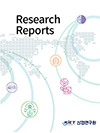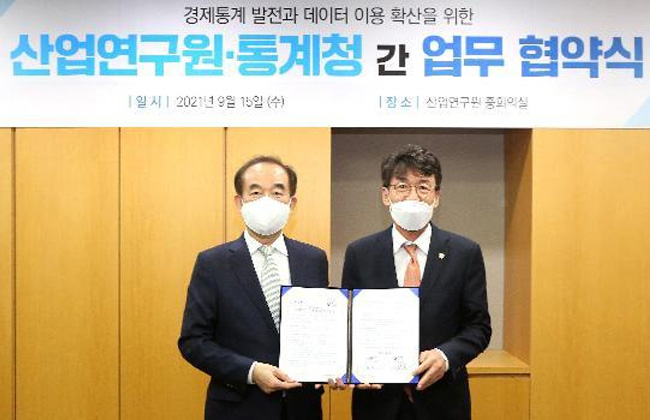Research Reports

Recently, environmental pollution problem is becoming serious in the world. Accordingly, the development and dissemination of environmentally friendly vehicles are becoming important. Environmental regulations for automobiles will be strengthened in the future. Therefore, sales of environmentally-friendly vehicles such as electric cars, plug-in hybrid cars are expected to increase rapidly. As technology advances, electric vehicles are now regarded as the most environmentally friendly vehicles, and Fuel cell electronic cars are expected to develop in the future.
The supply of environment-friendly cars in Korea is lower than the world average, but development and production levels are similar to. Korea’s electric cars and plug-in hybrid cars have been sold not only in Korea but also overseas. Fuel cell electronic vehicles (FCEVs) for Commercialization were produced for the first time in the world. Production of batteries, motors, and hydrogen stacks, which are core parts of hydrogen-fueled automobiles, is also being carried out domestically, so it has some competitiveness.
Korea’s eco-friendly automobile policy is largely concerned with automobile-related environmental regulation, supply support, and development of automobiles and components.
Government agencies including the Ministry of Commerce, Industry and Energy, the Ministry of Environment, the Ministry of Land, Transport and Maritime Affairs, the Ministry of Science and Technology and local autonomous entities, related organizations are involved in these policies. The government provides various policies and subsidies.
Korea is the world’s top Supporter supply of eco-friendly automobiles, and investment support for R & D is also taking place. However, there is an indication that the efficiency of the policy and the long-term perspective are lacking.
Therefore, Korea’s eco-friendly automobile policy should be promoted to meet the overall environmental improvement goals and environmental regulations should also be simplified. In particular, it should be considered whether it is truly environmentally friendly, and a method of distributing automobiles using hydrogen energy should be prepared by analyzing the domestic energy structure. In particular, considering the fact that it is environmentally friendly, it is necessary to analyze the domestic energy structure and propose a way to supply FCEVs using hydrogen energy. Supply policies should be differentiated by region and income level.
Korean governments and corporations should focus on developing competitive automobiles and components, and strengthen battery development. The government can improve the competitiveness of the car performance by considering the performance of the vehicle when driving the supply business. It is possible to create a new business model in the related industries of the environment friendly automobile sector. In order to export the environmentally friendly automobiles of Korean production, it is necessary to solve entry barriers and to open overseas markets. Currently, various policies are being pursued by various government ministries, so an institution that can manage them in a comprehensive manner should be established. Also, automobile industry policy should be pursued in accordance with local characteristics.

The works on this page are licensed for fair use under the provisions of the Korea Open Government License. See kogl.or.kr for more information.
Please enter the security text below
to prevent email collection
Please check the information of the person in charge.
연구과제 제안이 접수되었습니다.
신청이 접수되었습니다.


View Summary
코로나19 발생 이후 대부분의 고용 관심사가 항공 및 여행서비스, 음식·숙박 서비스 등 주로 서비스 업종에 집중된 상황에서 본 연구는 최근 그 중요성이 강조되고 있는 제조업의 고용변화를 살펴보았다. 분석에 따르면, 코로나19 이후 제조업 고용은 비교적 큰 충격 없이 빠르게 회복하는 모습을 보이고 있다. 제조업 고용은 서비스업에 비해 큰 충격 없이 유지되고 있고, 코로나19 직후 2020년 상반기에 약간 하락하였지만 하반기부터 회복 추세를 보이고 있으며, OECD 주요국의 제조업과 비교하여도 일본과 함께 고용 충격이 비교적 작게 나타나고 있다. 그러나 전반적으로 양호한 고용 성적에도 불구하고 제조업 내 특성 별로는 차이가 나타나는 것으로 보인다. 종사상 지위 별로 보면, 임시·일용직, 고용원이 있는 자영업자에서 고용 충격이 상대적으로 크게 나타났고, 상용직과 고용원이 없는 자영업자는 큰 충격이 없는 것으로 나타났다. 제조업 규모별로는 300인 이상의 경우 코로나 발생 초기 약간의 충격 이후 고용이 빠르게 반등하면서 코로나 이전보다 고용이 더 증가한 반면, 이보다 작은 규모의 제조업체들의 경우 고용 회복이 더디게 나타나고 있다. 고용의 중장기, 단기 추세선을 비교한 결과 제조업 업종에 따른 차이를 보였다. 코로나 발생 이전 3년간의 추세선을 2020년 1월부터 연장한 선과, 2020년 1월부터의 실제 자료를 이용한 단기 추세선을 비교한 결과, 의약품은 코로나19 발생 이전부터 시작하여 코로나19 발생 이후에도 견조한 증가세를 유지하고 있으며, 전자부품·컴퓨터, 기타운송장비, 가구는 코로나19 이후 오히려 고용 추세가 개선되었다. 그러나 다수 업종은 코로나 발생 이후 고용이 하락하였는데, 특히, 비금속광물, 1차금속, 금속가공 분야나 인쇄·기록매체 업종에서 하락이 상대적으로 크게 나타났다.
The following information is provided.
inform@kiet.re.krPlease complete the CAPTCHA below.
[전지적키에트시점] (Eng sub)심상치 않은
국내 대기업 움직임??
KIET 시점에서 보는 미래 로봇 산업 전망은
어떨까요?
경제전문가가 알려드립니다!
(산업연구원 박상수 실장)


